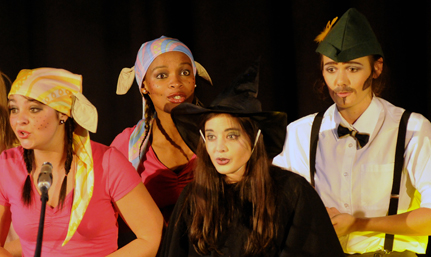|

|
| 12 March 2013 |
It’s time for Stagedoor again! Mounting excitement is spreading across the Bloemfontein Campus in anticipation for this annual art and culture event.
Stagedoor is a fun-filled musical theatre competition between campus and city residences. This year's theme is ‘LIKE A BOSS’ and residences will battling it out in the rotations on 12 and 13 March 2013. Finals will take place on Saturday 16 March.
“This year we're excited to welcome two new residences, Outeniqua and ConLaurês, to the competition,” says Tonderai Chiyindiko, Senior Officer: Arts and Culture: Student Life and Leadership.
“We've also aligned the rotations in line with our Colleges format system. So what that means is in each college three residences were randomly chosen by all the Residence Committee members for Arts and Culture to be the main host venues for each particular college.”
The number of finalists has also been increased to seven female and six male residences.
Rotations Venues
West College: Conlaures, Outeniqua, Vishuis
South College: Emily Hobhouse, Armentum
North College: Vergeet-My-Nie, Madelief, Tswelopele
East College: Khayalami, Roosmaryn
Central College: Soetdoring, Karee
Tickets for the final on 16 March: R30 Students; R50 Non-students.
Venue: Kovsie Church
Tickets are available in office 46 in the SRC Building.